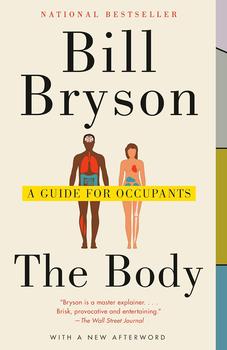Summary | Excerpt | Reviews | Beyond the Book | Readalikes | Genres & Themes | Author Bio

Critics' Opinion:
Readers' Opinion:
First Published:
Oct 2019, 464 pages
Paperback:
Jan 2021, 464 pages
 Book Reviewed by:
Book Reviewed by:
Kim Kovacs
Buy This Book
There are lots of ways the heart can falter. It can skip a beat, or more usually have an extra beat, because an electrical impulse misfires. Some people can have as many as ten thousand of these palpitations a day without being aware of it. For others, an arrhythmic heart is an endless discomforting ordeal. When the heart's rhythm is too slow, the condition is called bradycardia; when too fast, it is tachycardia.
A heart attack and a cardiac arrest, though usually confused by most of us, are in fact two different things. A heart attack occurs when oxygenated blood can't get to heart muscle because of a blockage in a coronary artery. Heart attacks are often sudden—that's why they are called attacks—whereas other forms of heart failure are often (though not always) more gradual. When heart muscle downstream of a block-age is deprived of oxygen, it begins to die, usually within about sixty minutes. Any heart muscle we lose in this way is gone forever, which is a bit galling when you consider that other creatures much simpler than we are—zebra fish, for instance—can regrow damaged heart tissue. Why evolution deprived us of this useful facility is yet another of the body's many imponderables.
Cardiac arrest is when the heart stops pumping altogether, usu-ally because of a failure in electrical signaling. When the heart stops pumping, the brain is deprived of oxygen and unconsciousness swiftly follows, with death not far behind unless treatment is quickly applied. A heart attack will often lead to cardiac arrest, but you can suffer cardiac arrest without having a heart attack. The distinction between the two is medically important because they require different treatments, though the distinction may be a touch academic to the sufferer.
All forms of heart failure can be cruelly sneaky. For about a quarter of victims, the first (and, more unfortunately, last) time they know they have a heart problem is when they suffer a fatal heart attack. No less appallingly, more than half of all first heart attacks (fatal or otherwise) occur in people who are fit and healthy and have no known obvious risks. They don't smoke or drink to excess, are not seriously overweight, and do not have chronically high blood pressure or even bad cholesterol readings, but they get a heart attack anyway. Living a virtuous life doesn't guarantee that you will escape heart problems; it just improves your chances.
No two heart attacks are quite the same, it seems. Women and men have heart attacks in different ways. A woman is more likely to experience abdominal pain and nausea than a man, which makes it more likely that the problem will be misdiagnosed. Partly for this reason, women who have heart attacks before their mid-fifties are twice as likely to die as a man. Women have more heart attacks than is generally supposed. Twenty-eight thousand women suffer fatal heart attacks in the U.K. each year; about twice as many die of heart disease as die of breast cancer. Some people who are about to experience catastrophic heart failure suffer a sudden, terrifying premonition of impending death. The condition is commonly enough observed that it has a medical name: angor animi, or "anguish of the soul." For a lucky few victims (insofar as good fortune can be attached to a fatal event), death comes so swiftly that they appear to feel no pain. My own father went to bed one night in 1986 and never woke up. As far as could be told, he died without pain or distress or indeed awareness. For reasons unknown, the Hmong people of Southeast Asia are particularly susceptible to a condition known as sudden unexplained nocturnal death syndrome. In it, victims' hearts simply stop beating while they are asleep. Autopsies nearly always show the hearts to look normal and healthy.
Hypertrophic cardiomyopathy is the condition that makes athletes die suddenly on playing fields. It arises from an unnatural (and nearly always undiagnosed) thickening of one of the ventricles and causes eleven thousand sudden unexpected deaths a year among people under forty-five in the United States. The heart has more named conditions than just about any other organ, and they are all bad news. If you can go through life without experiencing Prinzmetal angina, Kawasaki disease, Ebstein's anomaly, Eisenmenger syndrome, Takotsubo cardiomyopathy, or many, many others, you may consider yourself fortunate indeed.
Excerpted from The Body by Bill Bryson. Copyright © 2019 by Bill Bryson. All rights reserved. No part of this excerpt may be reproduced or reprinted without permission in writing from the publisher.





The Funeral Cryer by Wenyan Lu
Debut novelist Wenyan Lu brings us this witty yet profound story about one woman's midlife reawakening in contemporary rural China.
Your guide toexceptional books
BookBrowse seeks out and recommends the best in contemporary fiction and nonfiction—books that not only engage and entertain but also deepen our understanding of ourselves and the world around us.